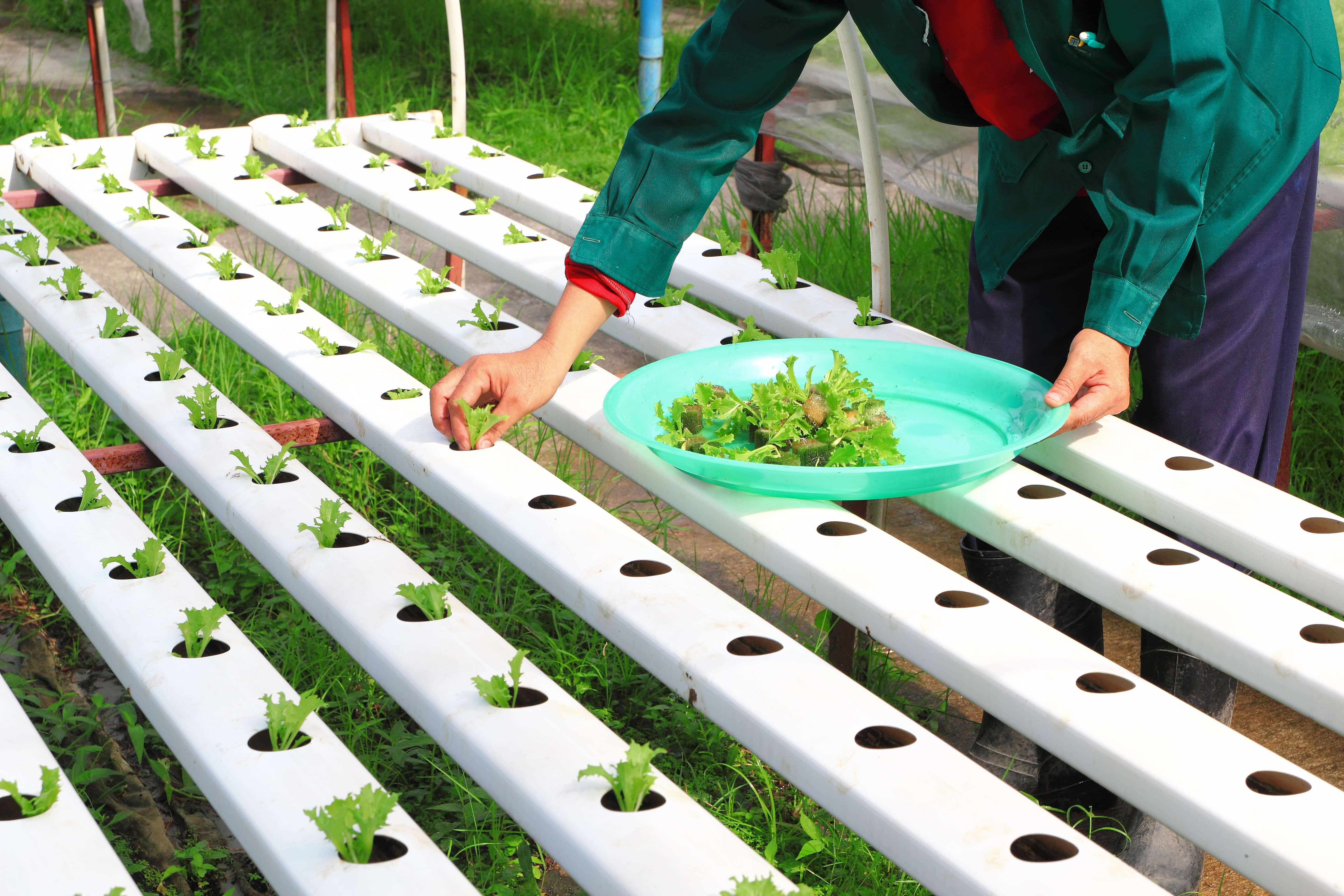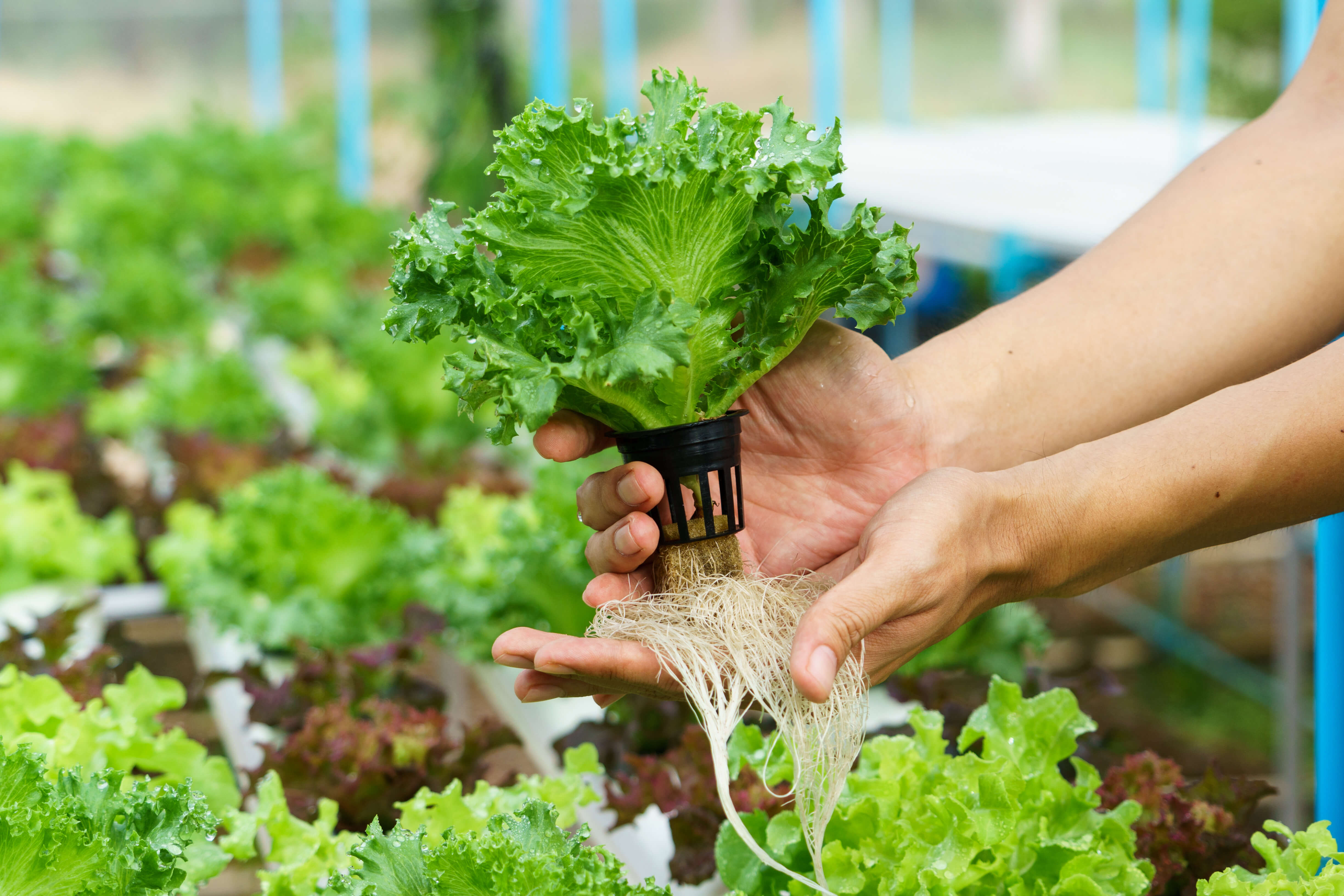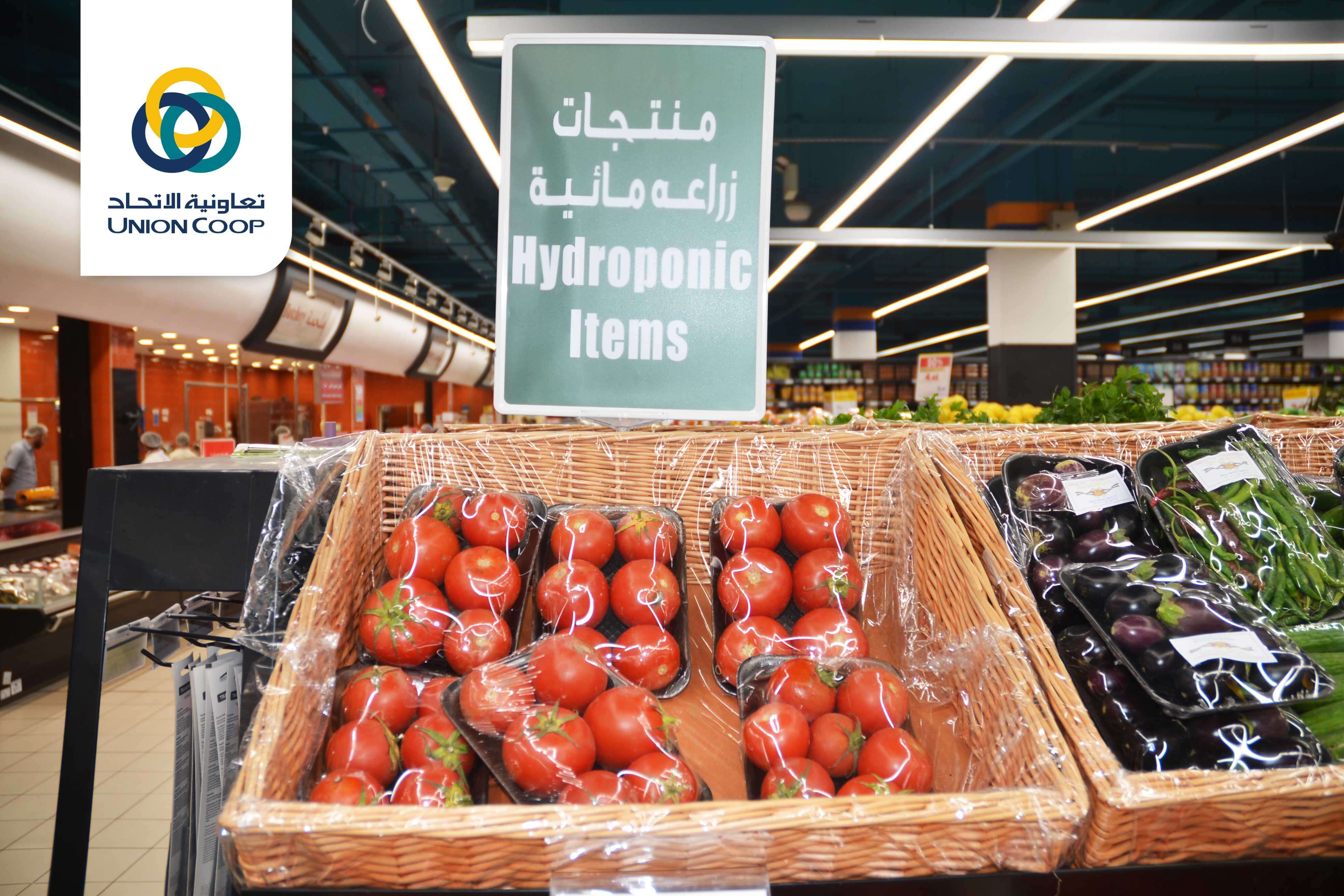Environmental Benefits of Hydroponic Farming
Union Coop consumers might have noticed this term written in the ‘fresh fruits and vegetables’ section, especially on top of specific vegetables or fruits. Some of us know what the term means and for those of you, who still wonder what hydroponic means, continue reading this blog.
Hydroponic Farming has several benefits over traditional soil irrigation method, and in this blog, we will be covering its environmental benefits.
However, before going over to the benefits, let us first explore what ‘Hydroponics’ is in the first place.

Definition –
Imagine an agricultural technique which does not require soil! This is ‘hydroponics’ for you. Apart from adequate sunlight and water, soil happens to be one of the primary requisites of traditional farming. Plants absorb certain nutrients from the soil to grow and in case of hydroponic farming, the necessary nutrients are provided to them directly, which eliminates the need for soil.
Some Environmental Benefits of this method:
· No need for massive lands for agriculture and increased production in terms of speed and numbers
One of the many benefits of the hydroponic style of farming is that it takes less space to grow plants compared to traditional farming methods. Hydroponic growth pots can be placed compactly without affecting the growth of plants. Necessary nutrients are distributed evenly through a solution in water, thereby taking soil completely off the occasion.
If done properly, hydroponics on a commercial scale consume 1/5th the space when compared to the traditional style of cultivation. In addition to that, some of the farmers innovatively create different heights by suspending some plants above others and plumbing them with adequate water supply.
· Reduced water usage
Optimum utilization of resources is something quite instinctive at the moment, which is one of the many reasons why hydroponic farming has an edge. In the case of traditional farming, crops need to be watered constantly and regularly, in order to prevent them from drying out. One problematic aspect with watering is that if the water provided is less, then it will merely be absorbed by the soil and in case watering is overdone, then it will sink past the roots and in some case kill the crop as well.
In the case of hydroponic farming, the water is maintained in and regulated from a central reservoir. This technique ensures equal distribution of water and avoids wastage as well. The water in the reservoir is diluted with the necessary essential nutrients.
Imagine the amount of water that one can save using the hydroponic technique of farming.
· Reduced deforestation for the creation of additional agricultural land
To make more land suitable for farming, humans are cutting down forests, which causes issues like soil erosion. The increasing population is forcing humans to convert forests into agricultural lands and the situation will worsen if appropriate steps are not taken.
Compared to traditional farming, hydroponic style reduces the amount of land needed, which enables farming even in geographical locations with harsh climate and non-fertile soil. Different combinations of hydroponic setups can be used to create unique aspects of farming, which is not possible in traditional farming. For instance, the combination of aquaculture and hydroponics leads to a system known as ‘aquaponics’ that deals in the production of flowers, fruits, vegetables, but also fishes.
Once applied on a commercial scale, hydroponic style of farming has enormous potential.
· Reduced dependence on fertilizers, chemical weed and harmful pesticides
Conventional farming deals with two kinds of chemical sprays – herbicides and pesticides. Former of the two i.e. ‘Herbicides’ are used to eliminate ‘unwanted plants’, also known as weeds, whereas pesticides are used to tackle pest insects.
Both the aforementioned chemical affluences damage the environment much more than you can imagine. Pesticides are swept away by rain, thereby contaminating the ecosystem, which includes other animals as well. Therefore, by using these chemicals we are not only affecting the quality of soil but also the natural habitat that surrounds us. In recent cases outside the UAE, pesticides molecules have been detected in the meats of fishes and other animals.
It is not the case with the hydroponic style of farming because the crops are protected by greenhouse style enclosures that are fortified to create an invisible field against insect/pest attacks.

Additional Benefits:
· Reduced time between the process of harvest and consumption increases the nutritional value of the yield.
· Flexible growing locations that result in less transport cost and ability to do farming in non-suitable climatic conditions as well.
If you liked what you just read, then give us a ‘thumbs up’. If you do not agree, then talk to us using the ‘comment’ section. Spread the word using the ‘share’ button!
















 P.O Box :
P.O Box : 

 2023 UNION COOP. All Rights Reserved
2023 UNION COOP. All Rights Reserved



Leave Comment